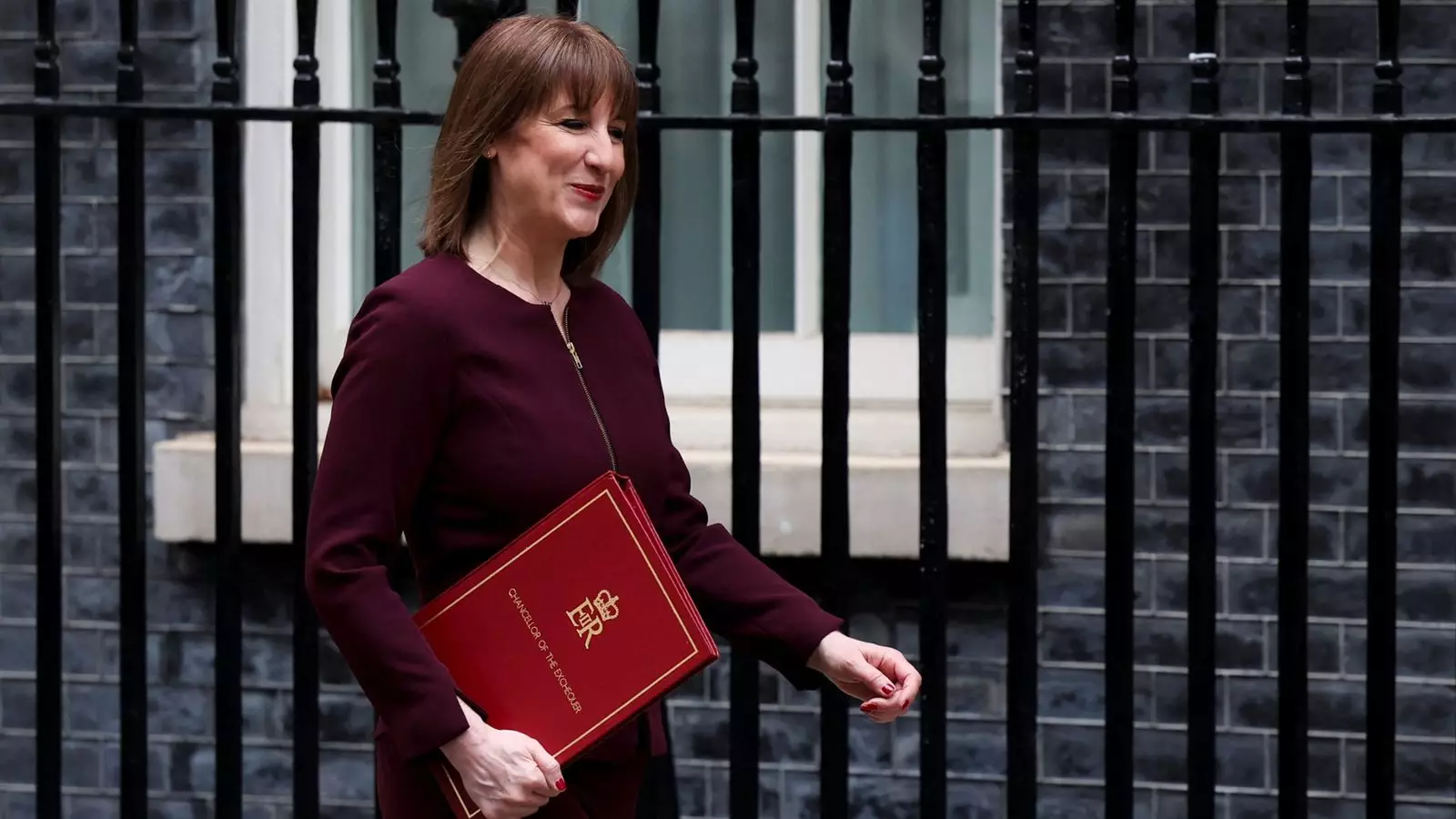The Office for Budget Responsibility (OBR) recently delivered a rather stinging blow to the UK’s economic aspirations by downgrading the growth forecast for 2025 from an optimistic 2% to a mere 1%. This is more than just a numerical adjustment; it’s a clear indication that the growth engine many were hoping would rev up under Chancellor Rachel Reeves is sputtering rather than roaring. The retraction resonates as an alarming symbol of the government’s current predicament—facing a future that looks less certain amid rising pressures and challenges.
Amidst the discouraging announcement, there was a glimmer of hope as the OBR raised growth forecasts for the subsequent years leading to the end of this parliament in 2029. But does throwing out an upbeat message about even better numbers down the road genuinely comfort the beleaguered public? It appears rather disingenuous, weaving a narrative that feels detached from the immediate real-world implications that regular citizens face. For mere projection without a concrete pathway to actualize those ambitions reeks of political posturing rather than substantive policymaking.
Hard Yards or Empty Promises?
Reeves, speaking in the House of Commons, described economic growth as something that cannot be conjured overnight—it requires “long-term decisions” and “hard yards.” This portrayal, while undoubtedly well-intentioned, has the potential to sound like a refrain without a song. Economic activism seems unwarranted when the established demographic has every reason to question if these “hard yards” are more about reshuffling priorities than planting seeds for genuine growth. Time and again, we hear that economic resilience emerges from initiative and tenacity; yet today’s economic narrative tends to lack substantive commitment beyond mere rhetoric.
The chancellor’s emphasis on reforms, such as revisiting the National Planning Policy Framework, feels like a desperate attempt to shove productivity amidst an overcrowded agenda. She claims these reforms will catalyze a permanent increase to GDP by 0.2% by 2029-30. Nevertheless, the future of the economy demands more than just garbled percentages. It wants clarity on how these plans translate into daily realities for everyday citizens. At a time when many struggle to make ends meet, such projections may offer little comfort and even less confidence.
Budgetary Tightrope: Balancing Cuts and Investments
In her spring statement, the Chancellor unveiled a budget narrative that predicts a shift from a deficit to a surplus over the next several years. However, beneath the glow of projected fiscal safety lurks a more troubling subtext: substantial welfare cuts. While reducing spending can be commendable during austere times, making cuts without substantial alternatives is akin to handing a drowning person a paper boat instead of a life preserver. If anything, the number of families reliant on welfare schemes for survival is increasing, and the mixture of benevolence and austerity leaves a bitter aftertaste.
Furthermore, Reeves’s voluntary redundancy scheme for civil servants—an initiative purported to enhance government efficiency—paints a daunting picture for public sector morale. Market-friendly reforms devoid of proper context can easily mirror a retreat rather than a reinvention. It raises questions about whether the government’s aim truly aligns with fostering innovation or merely trimming the fat where it’s easiest. The goal is not merely to “make government leaner,” but to ensure that “leaner” equates to “more effective” without disenfranchising loyal public service workers who are crucial to the fabric of society.
Political Gamesmanship: The Shadow of Doubt
Critics, including Shadow Chancellor Mel Stride, have not held back in their attacks, labeling the Chancellor’s projections as “gambler with half-fiddled fiscal targets.” This once again tells us everything we need to know about the current political atmosphere. The incessant back-and-forth may create entertaining theater, but it does nothing to address the urgent challenges facing millions. The hyper-focus on political superiority—accusations of incompetence and chaos—may generate headlines, but it fails to address the core realities for ordinary citizens reliant on economic stability.
As British society grapples with lingering uncertainties in the post-pandemic landscape, unnecessary political theater only deepens the divide between government decisions and the lived realities of the populace. What is required now is a groundbreaking approach—one rooted in empathetic governance, harnessing data and intellect, lest we diminish the gravity of economic governance to mere campaign slogans. The economic path ahead is undeniably treacherous; it requires more than the bluffing of targets and numbers—it demands courageous leadership and innovative solutions that genuinely uplift the populace.


Leave a Reply